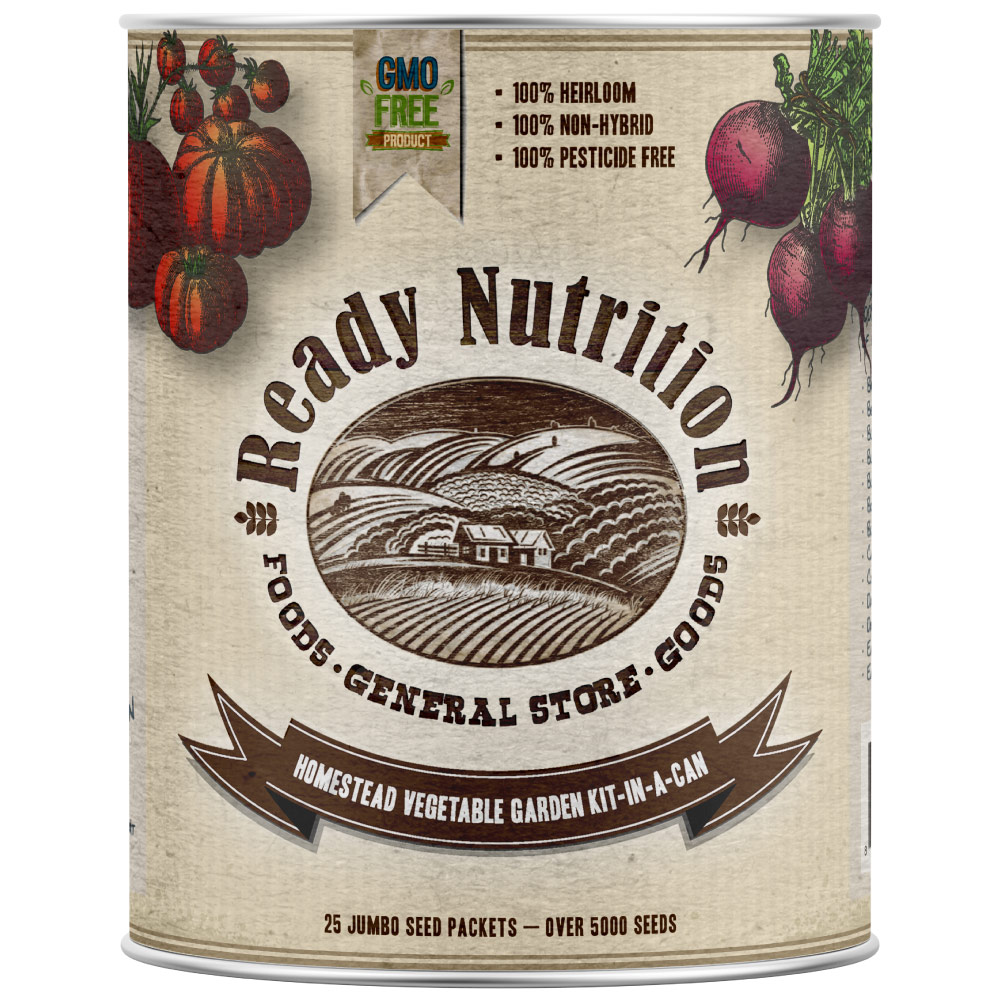We have all likely seen the reports that food shortages are coming. This seems to be the one thing that the mainstream media and alternative media can agree upon. From the health crisis, we learned that we cannot be fully dependent on stores to have an everlasting supply of food and everyday living items. Furthermore, some states have even banned the purchase of seeds, all but making being self-sufficient “illegal.” But this is still the best way to protect yourself.
If food shortages are coming, there is a way to prepare yourselves so your family can eat healthy foods even when the worst happens. You need to make the effort to become more reliant on yourself for your food regardless of what the media reports. No matter what happens, self-reliance is freedom. This is often seen as difficult in our minds, but it can be done! Any amount of improvement in the are of food self-sufficiency will go far when the grocery store’s shelves start to empty.
Order seeds online. It only takes a small amount of research to figure out what kind of vegetables and/or fruit you can easily grow in your own yard or balcony. Ready Nutrition offers a “garden in a can” which is an excellent way to grab some seeds from the comfort of your own home. With over 5,000 seeds in the can, this is what you get in a Homestead Vegetable Garden-In-A-Can:

- Produce enough fresh food for a family of eight for a whole year with just one can
- We test each and every seed batch for reliability to make sure you grow the most productive crop
- We source only heirloom seed varieties b/c we truly believe the old adage that says, “if it ain’t broke, don’t fix it”
- Our seeds are sourced through American farmers who pledge to never, ever use GMO crops
- Upside down & inside out, our seeds are tested to make sure they are positively pesticide-free
- You can bet the farm that we will make it right by you if you’re ever unhappy with any of our products—guaranteed!
Another easy way to help your garden is to start a compost pile and use it as fertilizer for your garden. Feeding the soil the nutrients it needs to grow food source is paramount in growing your groceries. A benefit to this is you are using sustainable approaches to using what you have to live. As well, a compost pile is fairly inexpensive to get going too. Here’s a great article that will explain how to create “black gold”:
Turn Trash Into Treasure: The Easy Way To Make A Compost Pile Or Bin
Gardening has the powerful effect of improving your mental and physical health too. I absolutely love weeding my garden and taking care of the plants. I try to protect them and love them in the same way I do my ducks simply because these plants will nourish your body. When you love your plants, you’ll also find that they nourish your soul. Again, this is why I provide as much love and gratitude toward my ducks as I can muster. They provide us with eggs and we should appreciate them for it.
If you simply cannot start a garden and compost bin, now is the time to start stocking up on crucial pantry items before the next run on stores. Each time you go to the store, start picking up extra items to extend your existing food pantry. The more you gather now, the more prepared you will be when the next emergency arises.
Here is a pantry primer on the easiest course to get started in creating a well-stocked emergency food pantry. The most important points to consider is to store nutritious foods you know you will use and find foods that will serve multiple purposes. Food versatility helps you store food that you know you will use.
There are several foods that you can stock up on.
- Canned beans (don’t forget to keep a manual WORKING can opener on hand at all times! I have two backups just in case!)
- Canned fruits
- Canned vegetables
- Canned meats such as spam, tuna, sardines, or chicken
- Bulk dried beans
- Bulk rice
- Canned soups
- Cooking oil (healthy oils are advised, such as coconut oil or olive oil or avocado oil)
- Seasonings (salt, pepper, paprika, baking essentials like yeast, baking soda, baking powder, etc.)
- Dried vegetables (great snacks and additions to soups)
- Seeds and nuts (chia seeds, sunflower seed, hemp seeds)
- Nut butters (peanut butter, almond butter)
- Frozen vegetables
All of these things can be purchased online, but if you choose to stock up frozen vegetables, it may be better to just get those locally so you can bring them home and freeze them immediately. There is still time to prepare for a food shortage and there is still time to make changes if you need to.
Once you start gardening and buying foods, make sure you know how to preserve your harvest so you’ll have a supply of fresh food over the winter. Stocking up on canning supplies will also be beneficial before there is a shortage of those items.
Maybe that time will run out, maybe it won’t but we should all at least take the time to weight to costs of preparing against the costs of not preparing. Taking the first step is always the hardest when we begin to prepare for any crisis. But once you get going, you’ll find you love the freedom of having your own food garden.

Glad to find a source for planting seeds.